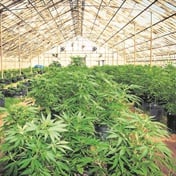
Activity in the country’s manufacturing sector declined sharply in February as record-high power cuts led to a marked deterioration in business conditions, the Absa Purchasing Managers' Index (PMI) showed on Wednesday.
The seasonally adjusted index fell to 48.8 points in February from 53.0 in January, slumping below the 50-point mark that separates expansion from contraction for the first time since September 2022.
The February survey period included the unprecedented seven consecutive days of stage 6 load-shedding, which was likely to create great concern for manufacturers that cannot work without power. Absa senior economist Miyelani Maluleke said reduced activity and lower new sales orders were behind the contraction.
READ: Rolling blackouts threaten the country’s democracy
The new sales orders index ticked down to its lowest level since October 2022, pointing to weaker domestic demand. This is despite an improvement in export sales in February.
Manufacturers have also had to contend with a weaker currency exchange rate and a slowing global economy and global demand.
Maluleke said a weaker rand was a double-edged sword for many manufacturers.
"On the one hand, it makes local products cheaper for foreigners so it should be boosting exports, in theory, but, on the other hand, a weaker exchange rate means that any of the inputs you have to buy from abroad will be more expensive.
"So far we’re not seeing real evidence that this is boosting exports in a big way.
"While the exports index did pick up a little bit, what we’re seeing is more of an impact on the costs side."
READ: IMF's projection for SA's economic outlook is more optimistic
The domestic economy is facing major headwinds and it’s becoming difficult for businesses to find a silver lining after government has not been able to contain the biggest challenge this country has seen in recent years; that is the power crisis. The recent grey-listing by the Financial Action Task Force has added to levels of uncertainty in the country.
Most estimates showed that the country’s economy was likely to grow by less than one percent in 2023, while a mild recession may be in the cards in the three months to March this year.
Businesses were less confident about the next six months after the expected business conditions index dropped to 46.8 points in February, pointing to a depressing outlook, Maluleke said. Respondents haven’t been this downbeat about future conditions since the end of the strictest phase of the Covid-19 lockdown.
This is the one part of the survey "that’s driven by sentiment; there we saw a really big drop in February," he said.
The PMI showed employment in the manufacturing sector had dipped in February after declining firmly back below the neutral 50-point mark, following an unexpected rise above this level in December. The seasonal boost that saw improvements in the employment situation is expected to have reversed somewhat on the back of record levels of load shedding and weaker economic growth.




 Publications
Publications
 Partners
Partners









